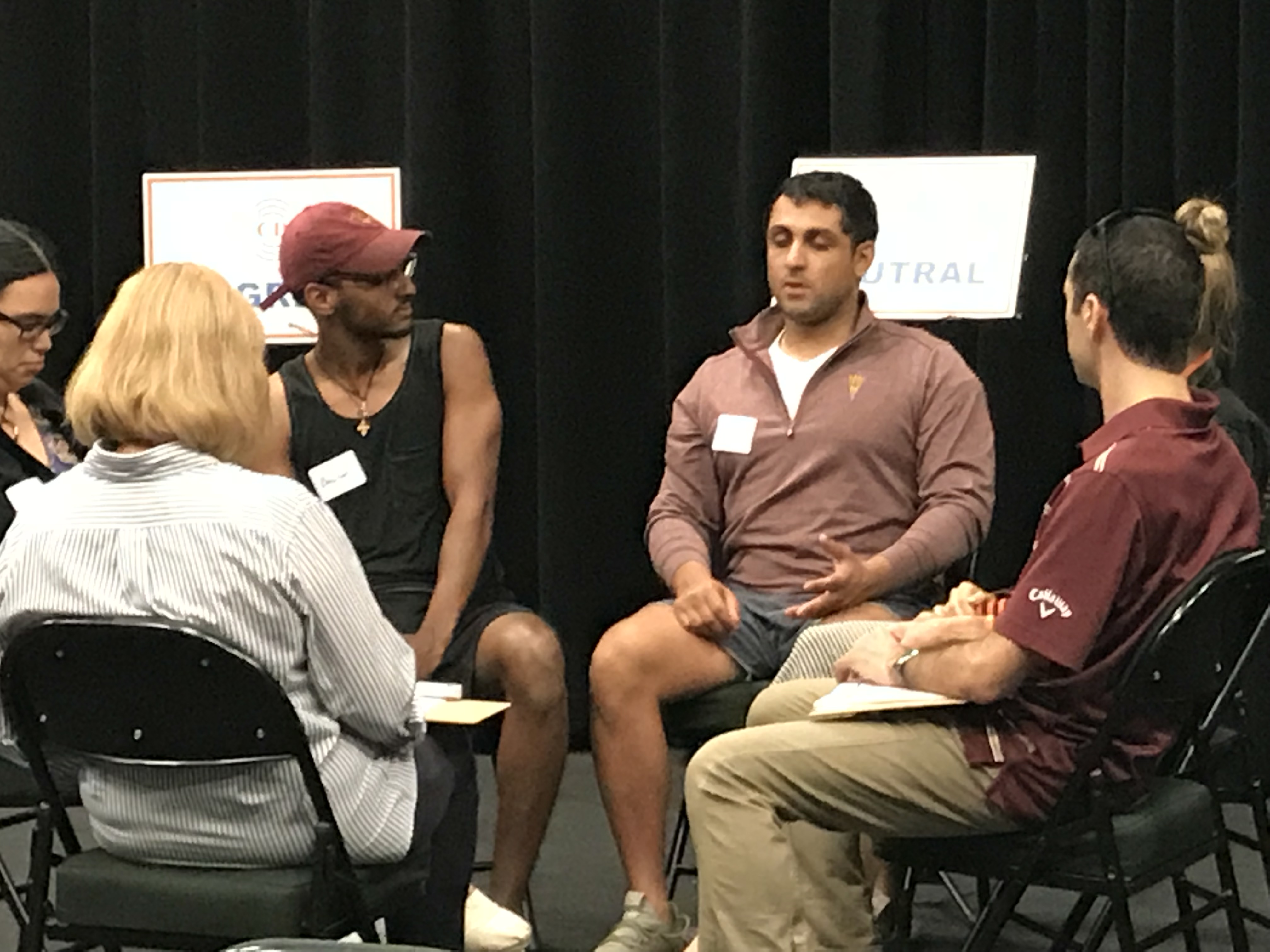In a Civil Dialogue session, volunteer participants consider a provocative statement and have the opportunity to embody a position on the statement ranging from “agree strongly” to “disagree strongly.” Participants are asked to follow guidelines for civility that are explained by the facilitator. The dialogue is then extended to the broader audience who are encouraged to respond with their own opinions and questions. Civil Dialogue is informed by rhetorical criticism and theories of performance and provides an innovative tool for productive citizen communication.
John Genette, a HDSHC alumnus, originally designed Civil Dialogue in 2004 as a way to explore citizen reaction to political rhetoric. He and Jennifer Linde, lecturer and Artistic Director for The Empty Space, facilitated dialogues in both the 2004 and 2008 presidential campaigns. Clark Olson, an instructional professional and former director of forensics at ASU, has collaborated with Genette and Linde in the development of the format. They have facilitated Civil Dialogues with community groups and university students taught the format to graduate students as an innovative research method, and trained National Communication Association educators and practitioners in the process of staging and facilitating Civil Dialogues.
The format continues to be used in numerous settings to explore such controversial issues as taxation, abortion, gay marriage, the war on terror, free speech, and immigration.
Certificate in Civil Communication
Civil Dialogue in the News
ASU Project Humanities hosts second installment of 'Aridity and the Desert'

